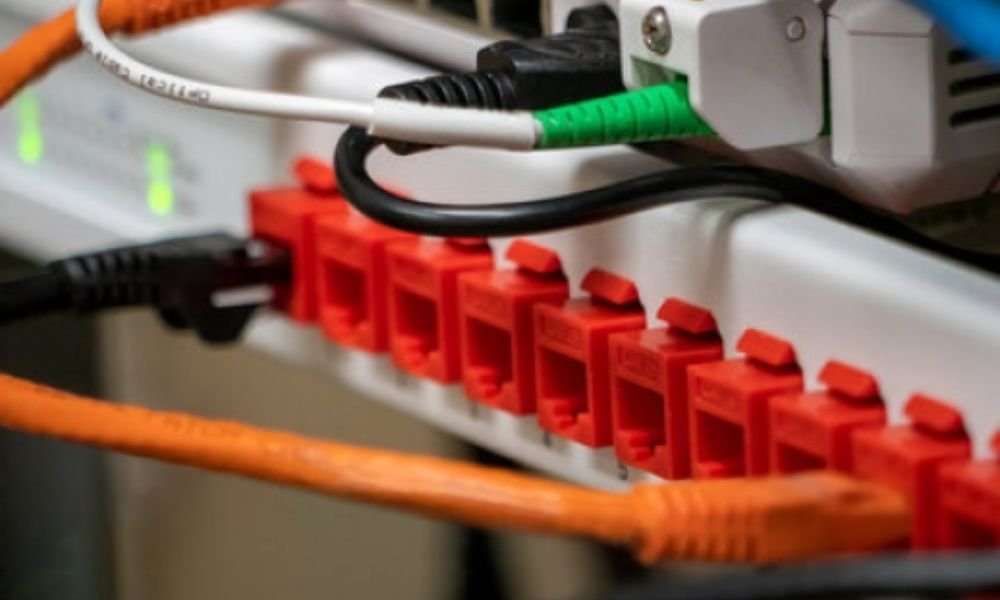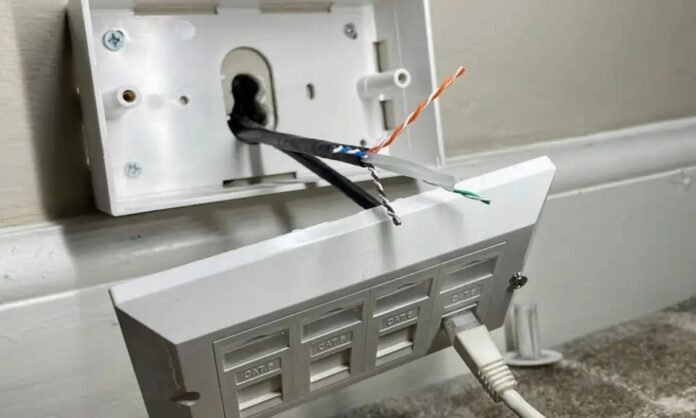In the digital age, a stable and efficient internet connection has become essential. Whether you are a passionate gamer, a professional who works remotely or simply a user who wants to take full advantage of online content, an Ethernet connection is the ideal solution.
If you want to install an Ethernet wall socket in your home, this article will guide you step by step through the necessary steps, providing you with all the technical details and simplifying the terms for easy understanding by everyone.
Prerequisites
Before you begin, make sure you have the following:
- Cat 5e or Cat 6 Ethernet Cable : These cables are designed for Gigabit Ethernet connections and provide optimal transmission speeds.
- RJ45 Ethernet wall socket : Choose a socket compatible with your cable type and suited to your interior decoration.
- Tools : You will need a wire stripper, cutting pliers, and an Ethernet cable tester (optional).

Steps to Wire an Ethernet Wall Jack
Now that you have gathered all the necessary materials, we will actual wiring steps Follow the instructions below carefully to achieve a successful installation.
Step 1: Prepare the Ethernet Cable

The first step is to prepare the Ethernet cable by stripping it properly. Use a cable stripping tool to remove approximately 2 to 3 centimeters of the cable's outer jacket. Be careful not to damage the wires inside.
Once the outer jacket is removed, you will see four pairs of twisted wires. Use your fingers to gently separate the pairs and line them up in the correct order.
Step 2: Crimping the Wires
Now that the cable is prepared, you can proceed to crimping the wires to the Ethernet wall jack . Insert the wires into the wall outlet following wiring diagram T568B, which is the most commonly used. Make sure each wire is correctly inserted into the corresponding slot.

Refer to the T568A wiring standard to arrange the wires in the correct order. For a standard connection, the order is generally:
- White-orange
- Orange
- White-green
- Blue
- White-blue
- Green
- White-brown
- Brown
Once the wires are inserted, use an RJ45 crimping tool to secure the wires in place. Apply firm pressure to make sure the wires are securely connected.
Step 3: Installing the Wall Outlet

Now that the wires are crimped, you can install the Ethernet wall jack into the recessed box. Secure the wall outlet to the box using the screws provided. Make sure the plug is secure and does not move.
Step 4: Verifying the connection
Once the installation is complete, it is important to check the connection to make sure everything is working properly. Use an Ethernet cable tester to check wire continuity and connection quality. Plug one end of the Ethernet cable into the wall outlet and the other end into a compatible device, such as a computer or router.
Turn on the Ethernet cable tester and follow the instructions included with the device to perform the test. The tester will check the continuity of the wires and tell you if the connection is good or if there are any wiring problems .
See also: Mobile network amplifiers: are they effective?
FAQs
Why should I hardwire an Ethernet wall outlet instead of using Wi-Fi?
Wired Ethernet connection provides a more stable and faster connection than Wi-Fi. It is ideal for activities requiring high bandwidth , such as online gaming, streaming HD videos, and transferring large files. In addition, it is less prone to interference and signal loss.
What is the recommended Ethernet cable for wiring a wall outlet?
It is recommended to use a Category 6 or higher Ethernet cable to wire a wall outlet. These cables offer optimal performance and are compatible with the highest connection speeds.
Can I use an existing Ethernet cable to wire a wall outlet?

Yes, you can use an existing Ethernet cable to wire a wall outlet , as long as it is in good condition and meets the appropriate wiring standards.
Is it necessary to call a professional to wire an Ethernet wall outlet?
Wiring an Ethernet wall outlet can be done by a novice by following best practices and proper instructions. However, if you are not comfortable with wiring or want professional installation, it is recommended to hire a professional.
What are the advantages of a wired Ethernet connection over Wi-Fi?
The advantages of a wired Ethernet connection over Wi-Fi include a more stable connection, higher connection speed, enhanced security, and reduced interference. Additionally, a wired Ethernet connection helps reduce Wi-Fi network congestion , which can improve overall network performance.




